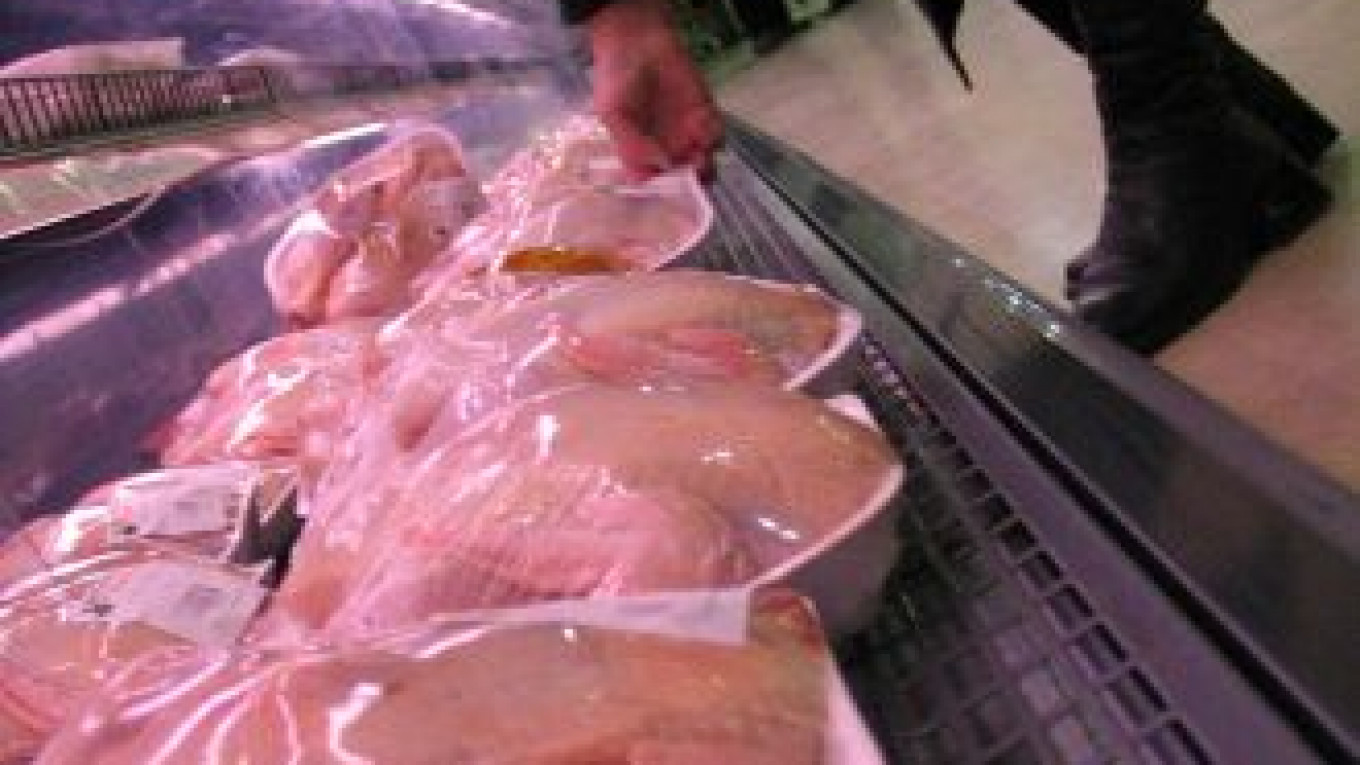CHICAGO —? Russia has raised "further issues" with a trade agreement that was supposed to have restarted U.S. poultry exports to the country after a six-month ban, U.S. chicken industry sources said Tuesday.
Industry and government sources did not specify the issues raised. The matter has reached Washington, where U.S. Agriculture Secretary Tom Vilsack said he was "concerned" and monitoring the situation.
A U.S. Department of Agriculture spokesperson later said the department was working with the United States Trade Representative "to ensure the terms of the agreement are fulfilled."
Russia had been the largest U.S. export market for chicken until it banned the meat in January, claiming a chlorine disinfectant used on the meat violated its food safety policy.
A deal to restart shipments was reached in June between U.S. President Barack Obama and President Dmitry Medvedev. As part of that deal, U.S. chicken companies agreed to use non-chlorine treatments on chicken bound for Russia.
"The Russians are now raising further issues about the provisions of the agreement. We hope these matters can be resolved speedily and are awaiting further clarification from the U.S. government," the National Chicken Council said in a statement on Tuesday.
"It is not going as smoothly as we would like," Toby Moore, spokesman for the USA Poultry and Egg Export Council, said when asked about the latest issues with Russia. "It is in both governments' hands."
The deal came after a series of talks between U.S. technical officials and the Federal Consumer Protection Service.
The USDA began posting plants approved to ship to Russia in late July, including some owned by top producers Tyson Foods, Pilgrim's Pride, and Sanderson Farms.
Pilgrim's Pride sold out its entire August volume from Russian-approved plants, its chief executive said last week.
But there are now more technical issues, said Nikolai Vlasov, deputy chief of the Federal Veterinary and Phytosanitary Inspection Service, Interfax reported.
The service warned Russian importers to wait until it posted a list of U.S. exporters on its web site.
"Resolving the problems has been complicated by a number of technical issues, and they've proven not so simple," Vlasov said.
A Message from The Moscow Times:
Dear readers,
We are facing unprecedented challenges. Russia's Prosecutor General's Office has designated The Moscow Times as an "undesirable" organization, criminalizing our work and putting our staff at risk of prosecution. This follows our earlier unjust labeling as a "foreign agent."
These actions are direct attempts to silence independent journalism in Russia. The authorities claim our work "discredits the decisions of the Russian leadership." We see things differently: we strive to provide accurate, unbiased reporting on Russia.
We, the journalists of The Moscow Times, refuse to be silenced. But to continue our work, we need your help.
Your support, no matter how small, makes a world of difference. If you can, please support us monthly starting from just $2. It's quick to set up, and every contribution makes a significant impact.
By supporting The Moscow Times, you're defending open, independent journalism in the face of repression. Thank you for standing with us.
Remind me later.


